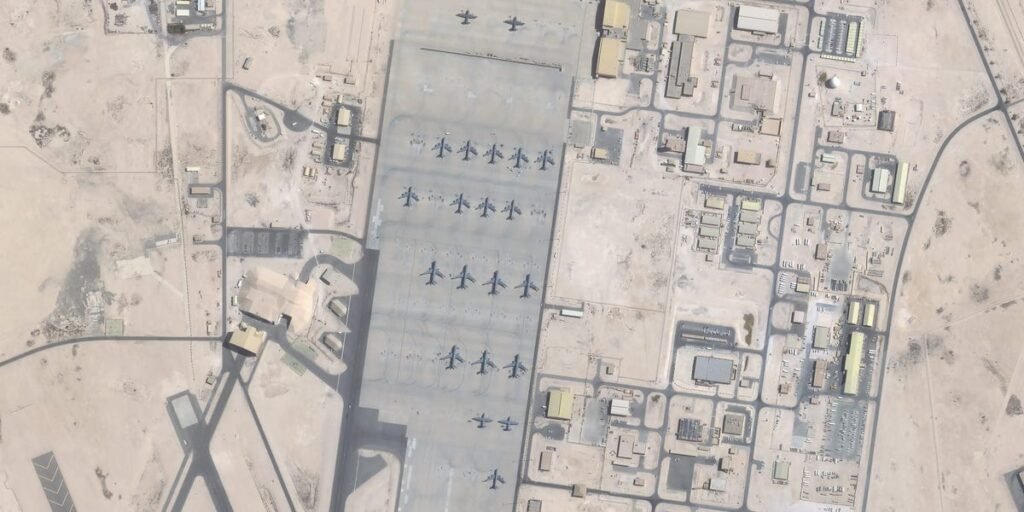Iran said it launched missiles at the US military’s largest Middle East base, Al Udeid Air Base in Qatar, just days after American forces struck its nuclear facilities.
Fars News Agency, which is run by Iran’s Islamic Revolutionary Guard Corps, said Tehran targeted Al Udeid with a volley of missiles, noting the number of missiles used was the same as the number of bombs the US used against Iranian nuclear facilities. State TV called the strikes “a mighty and successful response by the armed forces of Iran to America’s aggression.”
Qatar’s foreign ministry confirmed the attack and described it as a violation of its sovereignty. Doha said its air defenses “successfully thwarted” the strikes, intercepting the Iranian missiles. There were no casualties, it added.
Open-source accounts online shared footage purporting to show air defenses engaging targets over Qatar. Tasnim, a semi-official news agency associated with the IRGC, said Iran also targeted US forces in Iraq.
The Defense Department, US Air Force, and US Central Command, which oversees Middle East operations, did not immediately comment on the Iranian attack.
Satellite imagery of Al Udeid last week showed dozens of military aircraft missing from the base after around 40 were spotted there earlier in the month. The air base supports a vast array of US aircraft, including B-52 strategic bombers, C-17 Globemaster transports, and RC-135 Rivet Joint reconnaissance aircraft.
It’s unclear if any of the aircraft returned. Although the planes may no longer be there, US military personnel would still likely be on base.
Tehran had suggested that it could retaliate after US stealth bomber aircraft and a guided-missile submarine launched airstrikes against three Iranian nuclear facilities over the weekend.
Earlier on Monday, the US Embassy in Qatar warned Americans to shelter in place until further notice, just hours before Doha closed its airspace, suggesting that an attack could be imminent.
President Donald Trump had warned Iran that any retaliation against the US would be met with more force than the initial strikes.
“Our forces remain on high alert and are fully postured to respond to any Iranian retaliation or proxy attacks, which would be an incredibly poor choice,” Gen. Dan Caine, the chairman of the Joint Chiefs of Staff, told reporters on Sunday.
The US military has a large Middle East presence that is capable of air defense, including ground-based missile interceptors, fighter jets, warships, and aircraft carriers.
Read the full article here


